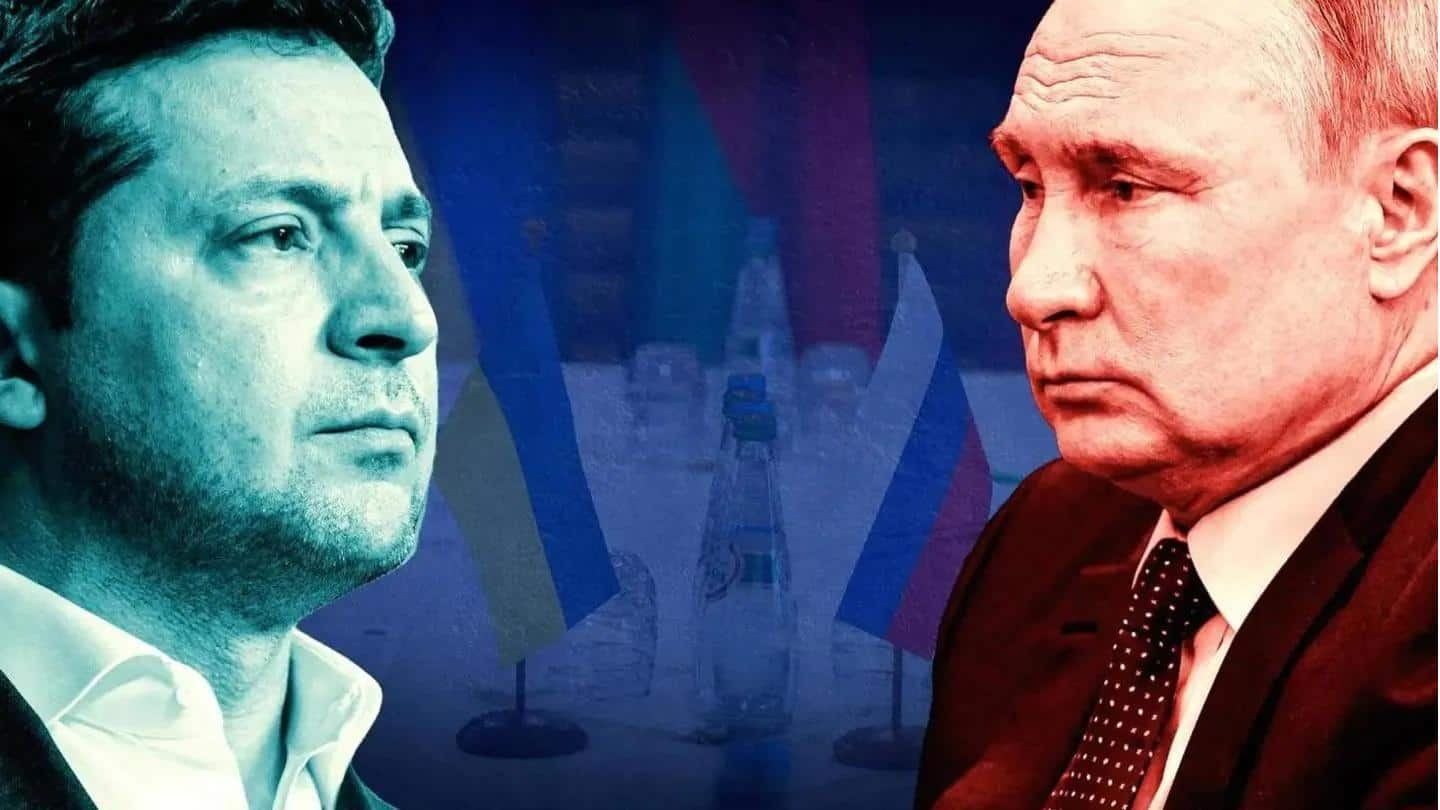
European Union bans most Russian oil imports: Details here
What's the story
The leaders of the European Union (EU) on Monday agreed to put an embargo on most imports of Russian oil.
Notably, this is the toughest sanction imposed by the 27-nation bloc on Russia since the Vladimir Putin-led nation invaded Ukraine on February 24.
This development comes even as Russian forces are battling on the outskirts of Sievierodonetsk—an east Ukrainian industrial hub.
Context
Why does this story matter?
To recall, the EU had earlier banned the import of Russian coal.
In retaliation, Moscow cut energy supplies to Bulgaria, Poland, Finland, and the Netherlands.
The next round of the EU sanctions could target Russia's gas supplies.
However, Austrian Chancellor Karl Nehammer said, "Gas can't be part of next sanctions."
The sanctions also show that the EU is united to stop the Russian aggression.
Exception
Ban would cut Russia's financing
The EU's latest ban would cover nearly two-thirds of oil imports from Russia and would cut a "huge source of financing for its war machine," European Council President Charles Michel said.
The only exception would be the landlocked Hungary, which heavily depends on piped crude oil supply from Russia and some other countries bothered by the economic impact of the ban.
'Remarkable achievement'
'We want to stop Russia's war machine,' says EU
Calling the sanctions a "remarkable achievement," Michel said, "We want to stop Russia's war machine."
"More than ever it's important to show that we are able to be strong, that we are able to be firm, that we are able to be tough," he added.
The new sanctions on Russia would be legally endorsed by Wednesday.
Sberbank
Three more Russian state-owned broadcasters also banned
The leaders at the EU summit held in Brussels also agreed to cut off Sberbank—the largest Russian bank—from the SWIFT system.
SWIFT—Society for Worldwide International Financial Telecommunications—enables banks to communicate transaction information and helps in facilitating imports and export payments.
Moreover, the EU has banned three more Russian state-owned broadcasters, Michel added. To recall, the EU prohibited the Kremlin-backed RT and Sputnik in March.
Damage
Russia advances in Donbas
The sanctions were slapped even as Russia has intensified attacks in Ukraine's eastern Donbas region comprising Luhansk and Donetsk.
Ukrainian President Volodymyr Zelenskyy called the situation in the region "extremely difficult."
Zelenskyy had on Monday said, "There, in the Donbas, the maximum combat power of the Russian army is now gathered."
He added that Russia had destroyed critical infrastructure and buildings in the area.
Quote
'Russia will find other importers'
On the other hand, Russia's permanent representative to international organizations in Vienna, Mikhail Ulyanov, responded to the EU's decision to impose sanctions. He tweeted, "As she rightly said yesterday, Russia will find other importers," referring to European Commission President Ursula von der Leyen.
Crude oil rates
Oil prices extend gains after EU ban
Following the EU's decision to ban Russian oil imports by the end of 2022, oil prices extended gains on Tuesday.
Brent crude for July rose 1.8% to $123.86 a barrel. The August contract surged to $119.85, an increase of $2.25.
US West Texas Intermediate crude traded at $119.12 a barrel—a rise of $4.05, or 3.5%, from Friday's closing rate.
Operation Ganga
Jaishankar to visit East, Central Europe
Meanwhile, External Affairs Minister S Jaishankar will reportedly visit Bratislava in Slovakia and Prague in the Czech Republic, among other nations in East and Central Europe to thank them for facilitating Operation Ganga.
The Centre had successfully evacuated more than 23,000 stranded Indian nationals from worn-torn Ukraine in February-March.
Jaishankar will also take a firsthand stock of the war situation in the region.